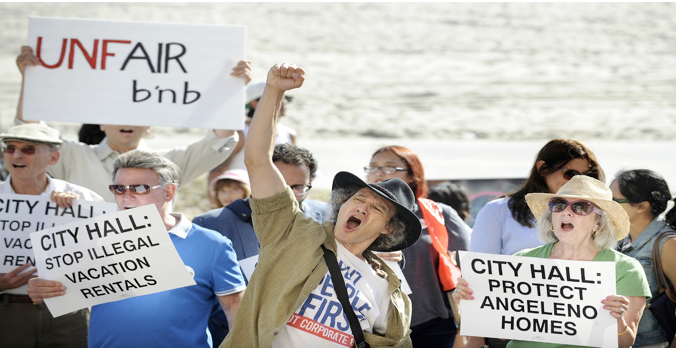Is Your House a Hotel?
In this post I’m going to give you some crucial information that you need if you intend to own a property that you will use for short-term rental.
But first, an admission.
When I was in the legislature I voted in favor of Senate Bill 1350 in 2016, which prohibited cities and towns from banning short-term rentals. It also put in place a structure to tax the services and it specified what municipalities could do to regulate them.

So, blame me if you want for how people have abused our neighborhoods with ill-managed short term rental properties. I hear you and I empathize.
I know many of my neighbors in historic neighborhoods, in particular, are very concerned about whether these homes will be treated well while being used as short-term rentals.
I stand by the vote because I think we need to be creative in the new sharing economy. However, I also remember saying at the time that we will have to re-visit this in the future.
We knew that cities and towns would confront new challenges in regulating short-term rentals and I, for one, felt it was best to see what those challenges would be and prepare to respond to them legislatively, if need be. Good government should be able to adopt new realities like the sharing economy and should be responsive as we learn how to adapt to the needs of the public.
So, I support the new law passed by the Legislature and Governor this year, which gives more teeth to cities and law enforcement. In no rational interpretation of the law, should a residential home be a hotel where massive parties are thrown and the needs of the neighborhood cast aside.
So, I hope the law works and we see the owners of short-term rentals respecting their neighborhoods.
Even given that, I’ve been shocked by how many properties are being used for short-term rentals by large corporations, which have purchased gads of properties, with little attention paid to the health of the neighborhood.
None of us saw that specific problem coming. Perhaps we should have.
My friend Tina Tamboer at the Cromford Report has specific concerns about short term rentals, as how they relate to the over-all real estate market. Here are a few:
- They can deprive families of homes.
- They can drive prices up because a buyer of a short-term rental home values it based on ROI, not just as an affordable place to live.
- If we don’t track which homes are short-term rentals, we won’t be able to predict a possible flood of homes on the market if the economy drops and the owners are not seeing the income they expected.
Having laid all that groundwork (and I felt like that context is important for anybody who wants to buy a home for this purpose), I want to cover what you need to know about this new law if you are going to operate a short-term rental property.
The new law, which you can read directly here, will make the following changes to current statutes:
- It allows municipalities to restrict the types of events that happen at these properties –think weddings and huge parties that would require a permit if planned in most other spaces.
- If you own and market a short-term rental, you must provide a primary contact to the municipality; a person that law enforcement or neighbors can call if there is a nuisance at the property.
- If you provide that information to the city or town, they must make a reasonable attempt to contact that person in the case of an ordinance violation.
- If you are cited and fined, but you don’t pay, then the citation gets forwarded to the Arizona Department of Revenue for collection and possible interest-based fees.
So, in short, if you need our help to identify a short-term rental property, we are going to refer you to these laws.
We believe in being good neighbors in our personal lives, and we have turned away business if we think they are not going to be good neighbors.
In the end, I think that we need solutions to our housing crisis in Arizona. While short-term rentals might be making that harder to solve, it is here to stay. As agents, we want to get you the best information about the laws and your responsibilities.
If you have more questions, call us at 602-456-9388.

